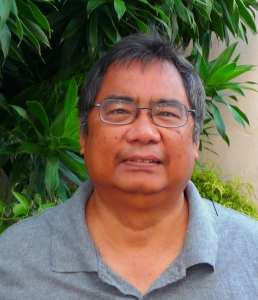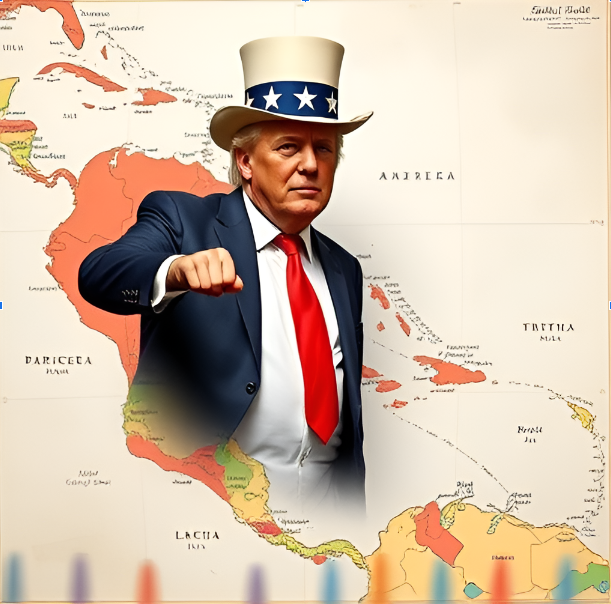By Ron Cheong |Photo by A.I.
The election of Donald Trump as the 47th President of the United States, with Republican control of the Senate and probably the House, is likely to bring sweeping, heavy-handed changes, staffing his Administration with like-minded people and purging professional staffing at government agencies, including the military, justice department, law enforcement, foreign trade, taxation, health care, and social services, replacing them with officials whose primary loyalty is to Trump.
We survived Trump 1.0, and now we are faced with Trump 2.0 on steroids and without guardrails.
It is an authoritarian, isolationist, heavy-handed, America-First, uncompassionate, transactional, pro-wealthy, quid-pro-quo, anti-immigrant, anti-China, tariff imposition, “drill baby drill” view of the world. Even more surreal, it will be headed by someone charged with inciting an attack on the Capitol, convicted by the courts on other matters, and openly admires dictators. All in what we understood to be the world’s greatest democracy.
Migrants
Mexico and Latin America are likely to be among the first to feel the pain if his promised deportation of “23” million undocumented workers starting on “Day 1” gets rolling, with these countries struggling to absorb the inflow, not to mention the distress of family separations in the US. His border wall will come back into focus, and Mexico, now the largest exporter to the US to the tune of around US US$600 billion, could face punitive tariffs to bring them to heel. At a rally in Raleigh, North Carolina, he pledged to implement a 25% tariff on Mexico if they didn’t assist in reducing migration to the US. He said that would be sure to work, or he would increase the tariff to 50% and then 75%.
Venezuela is also at the top of the list; Trump repeatedly riled his MAGA following and terrified other Americans that Venezuela had emptied their jails and asylums and sent the criminals to the US. How the mercurial transactional Trump deals with that falsehood to the satisfaction of his believers is anybody’s guess. He could ratchet up sanctions, or given his transactional nature, he could strike a deal with Maduro to take back some of the estimated 600,000 refugees in the US in exchange for allowing more Venezuelan oil onto the world market.
Tariffs & China
Trump has also vowed to levy a 100% tariff on cars produced in Mexico. Mexico is the 2nd largest car manufacturer in this hemisphere. But more importantly, this is likely a move against China, which is viewed as using Mexico as a backdoor to the US market. China is the leading car supplier in Mexico, and their cheap EVs are very popular. One Chinese manufacturer’s EVs sell for about half the price of the most affordable Tesla. The leading Chinese manufacturer, BYD, had been considering setting up their new auto plants in Mexico.
The impact on other Latin American countries will vary depending on how friendly or unfriendly they are to Trump. How receptive they have been to China’s diplomatic and economic engagement through the Community of Latin American and Caribbean States (CELAC) is equally important. China’s financing to the Caribbean and Latin America (LAC) reached US $136.5 billion between 2005 and 2022, with the main recipients being Venezuela ($60 bn), Brazil ($30 bn), Ecuador ($18.2 bn) and Argentina ($17 bn).
After decades of US neglect of the region, Vice President Kamala Harris started an initiative last year to counter the growing Chinese influence. The initiative’s goal is to improve regional food and energy sufficiency. It is complemented by the PACC 2030 partnership with the US on adapting to and moderating climate change, which aligns with the Paris Agreement, to which the US is a signatory. The UN’s 2030 Sustainable Development Goals (SDGs) aim to achieve “peace and prosperity for people and the planet.”
Guyana, which is 85% covered by forest, has long been a leader in environmental conversation with its Low Carbon Development Strategy. Also, with its recently discovered oil, abundant arable land, and an average annual deforestation rate of 0.053% since 2018, the country is a lynchpin in the initiatives. Trump has an entirely different opinion on climate change, and how that plays out remains to be seen.
Cuba will likely see most of Obama’s liberalizations it gained reversed once Trump takes power. Due to their critical energy shortage, the country is already reeling from island-wide blackouts lasting for days at a time. To add to their troubles, the island was hit by a 6.8-magnitude hurricane on Sunday.
Oil
Oil may play a more significant role than first appears on the surface. One would presume Trinidad and Tobago, Guyana, and Suriname would find favor with Trump.
In 2020, during the previous Trump administration, the US, through its Ambassador to Guyana Sarah Lynch (now Deputy to the Commander at SOUTHCOM) and then Secretary of State Mike Pompeo, played a pivotal role in preserving the country’s democracy when the previous incumbent resisted handing over power after the election.
Since then, relations between the two governments have strengthened, with the US supporting Guyana against Venezuela’s illegitimate claim to two-thirds of its territory. The two countries have carried out joint military maneuvers and increased cooperation against drug trafficking, money laundering, and corruption. The expectation is that this cooperation and territorial support will continue. But like all things Trump, nothing is ever certain. It is conceivable that the transactional Trump could strike some sort of deal with Maduro.
However, things look to be in Guyana’s favor, and its government has said it is looking forward to continuing the working relationship with Trump 1.0. Although Venezuela has the world’s largest oil reserves at 298 billion barrels, its oil is low quality, complex, and expensive. Guyana, on the other hand, which is ranked 17th in the world with about 11 billion barrels and growing, produces high-quality oil categorized as medium sweet – a good incentive for Trump to maintain support for Guyana, which has fast become a significant supplier to world markets, and perhaps even encourage speeded up production.
However, the region will face many challenges, requiring acumen, skill, and perseverance as it navigates local challenges and the geopolitical environment.
____

Ron Cheong is a retired banker with extensive international experience, including the Caribbean, and is a Fellow of the Institute of Canadian Bankers with a BSc from the University of Toronto.

